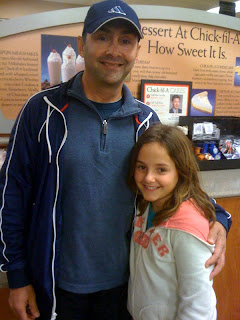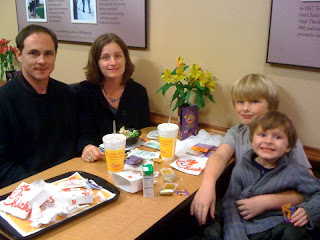
In our classroom, we spend a great deal of time building understanding of how to "think like scientists". We discuss applications to the "real-world" daily, as we make connections to experiments and labs we regularly perform in class and as we discuss nonfiction material that we read and study together in order to deepen our understanding of scientific concepts.
Below is a list of important ideas that we continue to emphasize in science, which align to our state standards and the recommendations by the National Science Foundation.
1) Scientists use their background knowledge (and do research) before experimenting. They use this knowledge to make an educated guess (hypothesis) as to the outcome (the answer to their “testable question”).
2) When doing experiments, scientists carefully measure materials (when there are

materials to measure) and they carefully collect measurement data (using tools such as rulers, timers, graduated cylinders, balance scales, etc.), so that they stay in control of the experiment, collect ACCURATE data, and draw accurate conclusions based on intentional variables (not unintentional variables that could occur if they performed a sloppy test (or trial).
3) Scientists change only one variable (called the independent variable) at a time when doing an experiment so that they will know what “caused” what they observed happening in the experiment. The change that occurs as a result of this independent variable is called the dependent variable. Scientists also have a “control”, a sample item intentionally left alone in its original condition that is not “experimented with”, so that as they observe changes in an experiment, they can recall the original state of what is being tested.
4) Scientists perform experiments multiple times to verify the validity of their data.
5) Scientists communicate with other scientists results of their work so that they may learn from each other. Differences in data collected (or outliers/unexpected outcomes) are analyzed so that the cause of these discrepancies can be determined (or scientists can at least "try" to determine why something unexpected happened).
6) In experiments where changes occur over a relative short period of time, data is collected frequently so that it will be known "when" a change occurred (such as in water evaporating from a cup left out in the sun)- scientists might check a water level and record the depleting amount of water in milliliters every 15 minutes so that they will have a good idea at what “time” the last of the water evaporated from the cup.

7) Data is collected at regular intervals (not haphazardly), and this information is often times compiled in a table/chart or put into a graph to better analyze the results so that reliable conclusions can be drawn.
8) Conclusions drawn after an experiment are based on evidence (collected and analyzed data), and the hypothesis is always reviewed and determined correct or incorrect.
9) Experiments and conclusions drawn (new ideas learned) always lead to NEW questions (goal: testable questions) and new experiment opportunities.
 Inquiry is at the heart of science.
Inquiry is at the heart of science.In our classroom, our students are
immersed in science experiences to help build and sustain these ideas. We don’t just talk about them, we actually “do” these things, and we talk about why we are doing them as we do them so that the students will understand what science truly encompasses.
Which part of "being" a scientist do you find to be most enjoyable
and why? Leave a comment. If you are on our Four Corners Team, a great comment will earn some great Behavior Bucks!




















